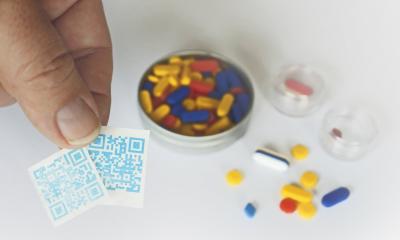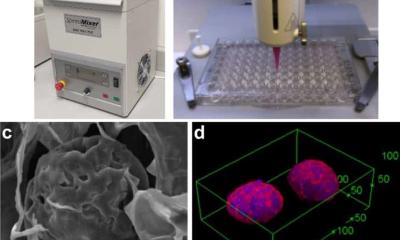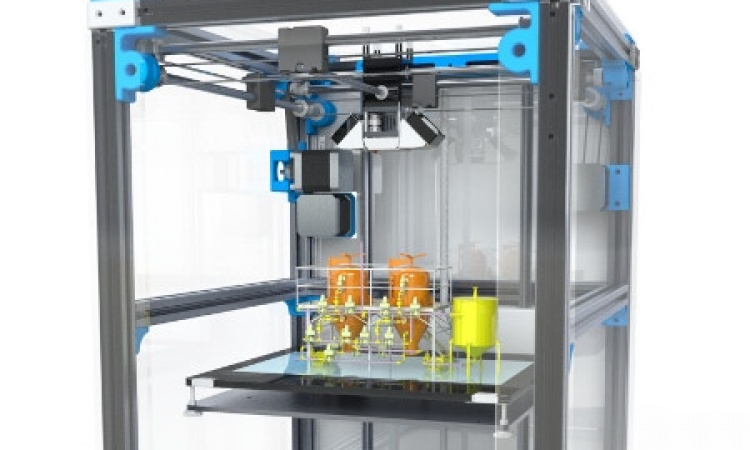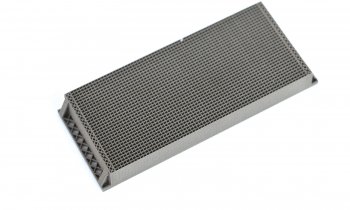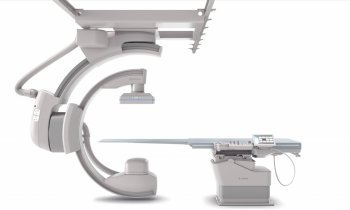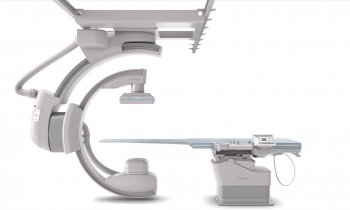Image source: University of Nottingham, Centre for Additive Manufacturing
News • Multimaterial medication
New 3D printing research for personalised pills
A new technique for 3D printing medication has enabled the printing of multiple drugs in a single tablet, paving the way for personalised pills that can deliver timed doses.
Researchers from the University of Nottingham’s Centre for Additive Manufacturing have led research alongside the School of Pharmacy that has fabricated personalised medicine using Multi-Material InkJet 3D Printing (MM-IJ3DP). The research has been published in Materials Today Advances.
The team have developed a cutting-edge method that enables the fabrication of customised pharmaceutical tablets with tailored drug release profiles, ensuring more precise and effective treatment options for patients. Using Multi-Material InkJet 3D Printing (MM-IJ3DP), tablets can be printed that release drugs at a controlled rate, determined by the tablet's design. This is made possible by a novel ink formulation based on molecules that are sensitive to ultraviolet light. When printed, these molecules form a water-soluble structure.
The future of prescribed medication lies in a personalised approach, and we know that up 50% of people in the UK alone don’t take their medicines correctly and this has an impact on poorer health outcomes
Felicity Rose
The drug release rate is controlled by the unique interior structure of the tablet, allowing for timing the dosage release. This method can print multiple drugs in a single tablet, allowing for complex medication regimens to be simplified into a single dose.
“This is an exciting step forwards in the development of personalised medication. This breakthrough not only highlights the potential of 3D printing in revolutionizing drug delivery but also opens up new avenues for the development of next-generation personalized medicines", said Dr Yinfeng He, Assistant Professor in the Faculty of Engineering’s Centre for Additive Manufacturing. “While promising, the technology faces challenges, including the need for more formulations that support a wider range of materials. The ongoing research aims to refine these aspects, enhancing the feasibility of MM-IJ3DP for widespread application,” Professor Ricky Wildman added.
This technology will be particularly beneficial in creating medication that needs to release drugs at specific times, making it ideal for treating diseases, where timing and dosage accuracy are crucial. The ability to print 56 pills in a single batch demonstrates the scalability of this technology, providing a strong potential for the production of personalised medicines.
“The future of prescribed medication lies in a personalised approach, and we know that up 50% of people in the UK alone don’t take their medicines correctly and this has an impact on poorer health outcomes with conditions not being controlled or properly treated. A single pill approach would simplify taking multiple medications at different times and this research is an exciting step towards that,” concluded Professor Felicity Rose, School of Pharmacy.
Source: University of Nottingham
15.05.2024



